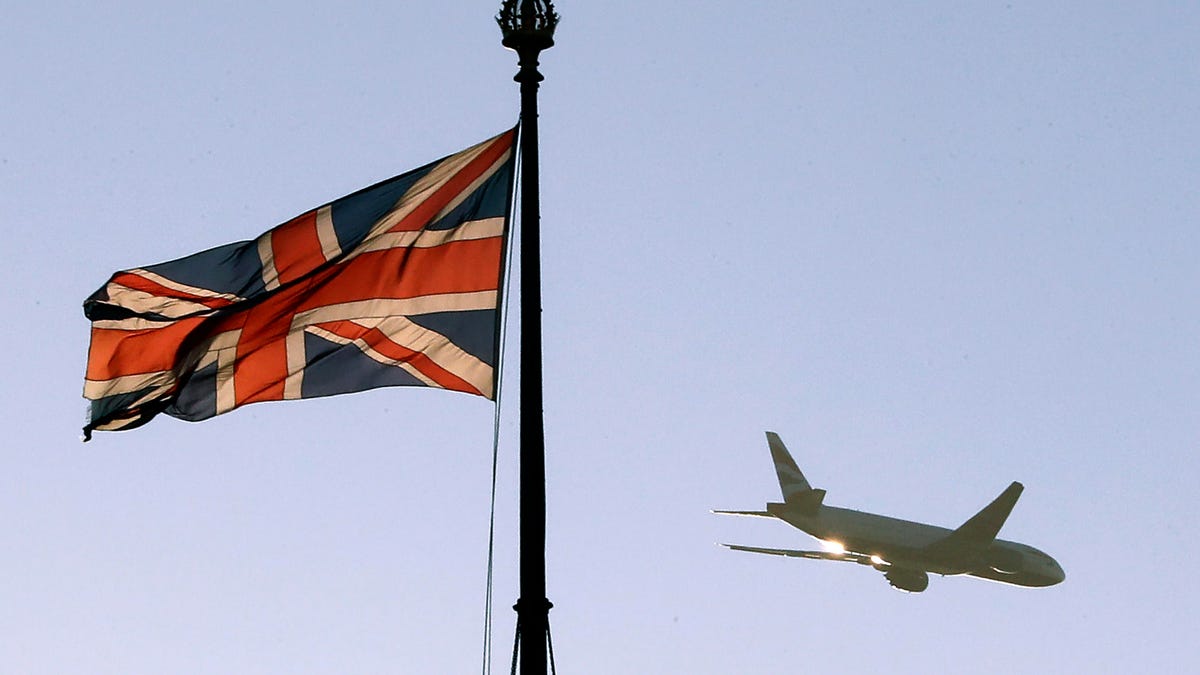Return of roaming charges after Brexit is a possibility, but not a given
There's no need to panic just yet.

For almost two blissful years British citizens have been able to use their phones abroad at no extra cost.
Now, thanks to the UK's impending departure from the EU, some are concerned that might all be about to come to an end.
If Prime Minister Theresa May's deal to leave the EU is accepted by UK Parliament, then the current arrangements that allow for free roaming across Europe will stay in place until at least December 2020. But if the UK leaves the EU at the end of March without securing a deal, roaming fees could be reinstated overnight, reported the Huffington Post this week.
In spite of pressure from consumer groups to protect the current arrangements, which allow free roaming across Europe and came into force in June 2017, the government has decided that UK phone users traveling abroad will be liable for paying data surcharges from March 29.
But that doesn't necessarily mean British travelers are about to see a huge bump in their phone bills.
Even though the government says that ensuring UK customers have access to free roaming will no longer be a legal requirement in the case of a no-deal Brexit, it doesn't have the final say over whether free roaming will stay or go. It's actually up to the individual mobile networks to decide -- and just because they can reintroduce roaming fees, it doesn't mean they will.
When the UK leaves the EU, it'll be up to the individual networks to strike new, possibly reciprocal deals with counterparts in other European countries, to ensure that UK citizens could enjoy roaming with no extra fees in Europe and EU citizens are given the same privilege when they're visiting the UK.
It's in the networks' best interests to ensure that roaming fees don't return, as it would put them at a massive competitive disadvantage, said CCS Insight analyst Kester Mann. Currently there's healthy competition among the four main networks in the UK -- EE , O2 , Three and Vodafone -- as well as a number of smaller networks. It would be "brave" to buck the trend and bring back roaming, said Mann.
Roam probably won't be unbuilt in a day
Holidaymakers and travelers across Europe celebrated when roaming fees were first dropped in 2017, and since that time they've saved million of pounds and euros by using data abroad at no additional cost. If one network decided to bring back roaming fees, it would likely make itself extremely unpopular with customers.
"Reinstating roaming would probably only work if operators moved in unison," said Mann. "This feels unlikely given the disruptive players on the market. And even if they did, Ofcom [the telecoms regulator] may still be within its rights to clamp down if it deemed the move unnecessary."
We also already know that one of the four major networks, Three, has categorically ruled out reintroducing roaming fees. Three has long set itself apart from its competition in the UK by scrapping roaming fees in many European countries before the Europe-wide ban came into effect in 2017. It also offers free roaming to many customers visiting more far-flung destinations, including Brazil, Singapore, the US and Australia.
"We're committed to eradicating excessive roaming charges and will retain this great customer benefit regardless of Brexit negotiations, allowing our customers to continue using their usual allowances when they travel within the EU," a company spokeswoman said in a statement.
The other networks also reiterated their commitment to trying to maintain the same deals their customers currently enjoy. Statements from EE and O2 showed that the two companies are closely aligned on the matter. They both have "no plans" to change the current deals and are "working closely with the government" to ensure customers continue to enjoy free roaming after the country leaves the EU.
The only sign of reticence to commit to maintaining current deals came from Vodafone. "It's too soon to assess the implications of Brexit on roaming regulation, however, we expect competition will continue to drive good value for customers," a spokeswoman from the network said in a statement.
Some laws will still be applicable to the operators after Brexit, no matter what the circumstances. The operators will have to warn customers when they use up 80 percent and 100 percent of their data allowance, for example. The companies will also have to cut off data access when roaming surcharges reach £45, unless they're given explicit permission by the customer to continue.
Yes, in the event of a no-deal Brexit, mobile networks will no longer be legally obliged to continue providing free roaming to UK travelers. But it shouldn't be taken as a given that free roaming's days are numbered.
CNET Magazine: Check out a sample of the stories in CNET's newsstand edition.
Taking It to Extremes: Mix insane situations -- erupting volcanoes, nuclear meltdowns, 30-foot waves -- with everyday tech. Here's what happens.

